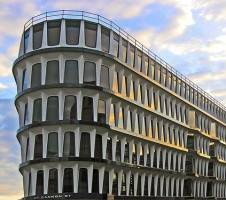March 19, 2015
Six key workplace and property announcements from this week’s budget
 In yesterday’s budget announcement, the Chancellor maintained the Government’s focus on regional devolution and investment in both physical and digital infrastructure. In truth, there was little surprising in the announcements, many of which had been signalled in advance and were rooted in existing policies. Some of them arrived fully formed, such as the devolution of powers related to business rates. Others, including the much talked about and overdue investment in regional infrastructure such as the cross country fast rail link, were fleshed out. Given that this is a budget with both eyes on the forthcoming general election, it’s a shame that some announcements lacked detail. Here are six of the key announcements that will affect the workplace, technology and property sectors.
In yesterday’s budget announcement, the Chancellor maintained the Government’s focus on regional devolution and investment in both physical and digital infrastructure. In truth, there was little surprising in the announcements, many of which had been signalled in advance and were rooted in existing policies. Some of them arrived fully formed, such as the devolution of powers related to business rates. Others, including the much talked about and overdue investment in regional infrastructure such as the cross country fast rail link, were fleshed out. Given that this is a budget with both eyes on the forthcoming general election, it’s a shame that some announcements lacked detail. Here are six of the key announcements that will affect the workplace, technology and property sectors.

















 The UK labour market will continue to expand at a strong rate in 2015 but there are unresolved issues relating to levels of pay and how best to increase workplace productivity to drive further growth, according to Mark Beatson, chief economist for the Chartered Institute of Personnel and Development (CIPD) in
The UK labour market will continue to expand at a strong rate in 2015 but there are unresolved issues relating to levels of pay and how best to increase workplace productivity to drive further growth, according to Mark Beatson, chief economist for the Chartered Institute of Personnel and Development (CIPD) in 







